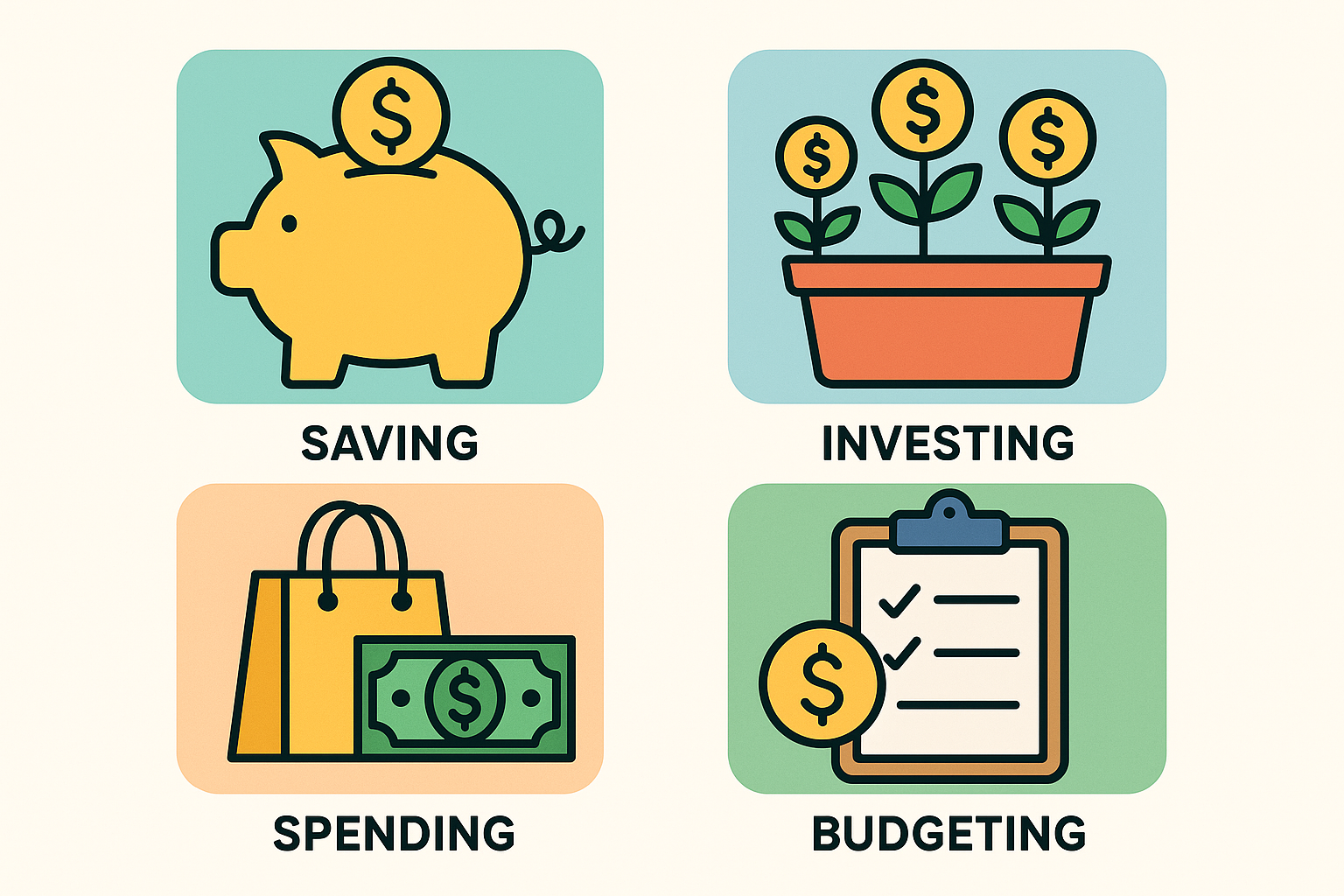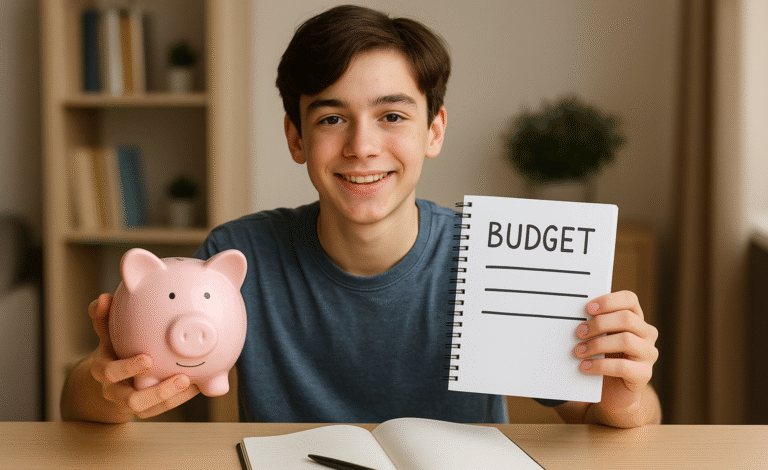Introduction: Why Beginner Personal Finance Matters for Teens
If you’re a teenager or a young adult, chances are you’ve thought about money. Maybe you want to save up for a phone, buy clothes you love, or even help your parents a bit. But what if I told you that learning a few simple beginner personal finance habits right now could change your entire future?
Welcome to beginner personal finance. This guide will break down everything you need to know about money in a way that makes sense, is easy to apply, and helps you feel confident about your financial future.
Table of Contents
1. Understand the Basics: What is Beginner Personal Finance?

Beginner personal finance simply means managing your money—how you earn, save, spend, and grow it.
Here are the main pillars:
- Earning: Allowance, part-time job, freelancing
- Saving: Setting aside money for later
- Spending: Using money wisely on needs vs wants
- Investing: Making your money grow (more on this later)
- Budgeting: Planning where every rupee/dollar goes
Getting a grip on these basics is the first step to mastering beginner personal finance.
2. Track Your Money (Every Rupee Counts)

You can’t manage what you don’t track.
Start by keeping a notebook or using free apps like:
- Walnut
- Money Manager
- Goodbudget
Track how much money you receive and where you spend it. This habit alone can help you identify wasteful spending and start saving better.
Beginner personal finance tip: Treat your money like your time—don’t waste it.
3. Budgeting: Give Every Rupee a Job

A budget is a plan for your money.
Here’s a simple starter rule:
- 50% for needs (food, school, transport)
- 30% for wants (entertainment, shopping)
- 20% for savings (or investing if you’re ready)
Tools like Google Sheets or apps like YNAB (You Need A Budget) make budgeting easy and visual.
Learning how to budget is a game-changer in beginner personal finance.
Try the Money Manager app to easily log your income and expenses.
4. Start Saving (Even Small Amounts Matter)

Saving is your safety net. You don’t need to wait until you’re earning a salary. Start with:
- Your pocket money
- Part-time income
- Festival gifts
Set a goal: “I want to save ₹500 in 2 months.” Then reverse engineer how much you need to save weekly.
Beginner personal finance mindset: Saving isn’t boring; it’s building future freedom.
5. Learn the Difference Between Wants and Needs
This is where most teens go wrong. You “need” food and school books. You “want” the latest shoes.
Every time you’re about to buy something, ask:
- Is this a want or a need?
- Can I wait 7 days before buying it?
- Do I have to spend this money right now?
This is a key part of smart beginner personal finance thinking.
6. Build Healthy Money Habits Early

Money habits compound just like money does. Start now:
- Automate savings if possible
- Set short-term money goals
- Learn one new money skill each week
Want to build strong daily habits? Start with your mornings. Here’s how to craft a powerful start to your day with our guide on The Power of Morning Routines.
Simple habits now lead to big wins later. That’s the power of beginner personal finance.
7. Avoid Debt (Especially the Bad Kind)
Not all debt is bad, but for beginners, it’s best to stay debt-free.
Avoid:
- Borrowing from friends for shopping
- Using credit cards for luxury purchases
Understand good debt (like education loans with a plan) vs bad debt (spending money you don’t have).
Beginner personal finance rule: If you can’t buy it twice, you can’t afford it.
8. Grow Financial Knowledge

Knowledge is free. Start learning:
- Read blogs (like Smart Growth Guide)
- Follow YouTube channels on beginner personal finance
- Listen to podcasts like “Planet Money”
Some great books to start:
- Rich Dad Poor Dad by Robert Kiyosaki
- The Psychology of Money by Morgan Housel
Beginner personal finance becomes fun once you understand how powerful it is.
9. Explore Simple Ways to Earn
Yes, you can start earning in your teens:
- Sell handmade crafts online
- Offer tutoring or teach something you know
- Freelance graphic design, writing, or video editing
Earning teaches responsibility—a pillar of beginner personal finance.
10. Think Long Term: Why Start Early?
The earlier you start, the better. It gives you:
- Time to make mistakes and learn
- Years to let savings grow (thanks to compound interest)
- Confidence to make smarter life decisions later
Starting beginner personal finance at 16 is 10x better than starting at 26.
Final Thoughts: You’re Already Ahead

By reading this, you’re already way ahead of most teens.
Managing money isn’t just about numbers—it’s about freedom, choices, and peace of mind. Stick to these basics, and your future self will thank you.
And remember: Comfort with money doesn’t come from how much you have. It comes from knowing how to manage what you do have.
That’s what beginner personal finance is all about.
If you want to go beyond finances and build life-changing habits, check out our 21-Day Life Transformation Challenge.








Leave a Comment